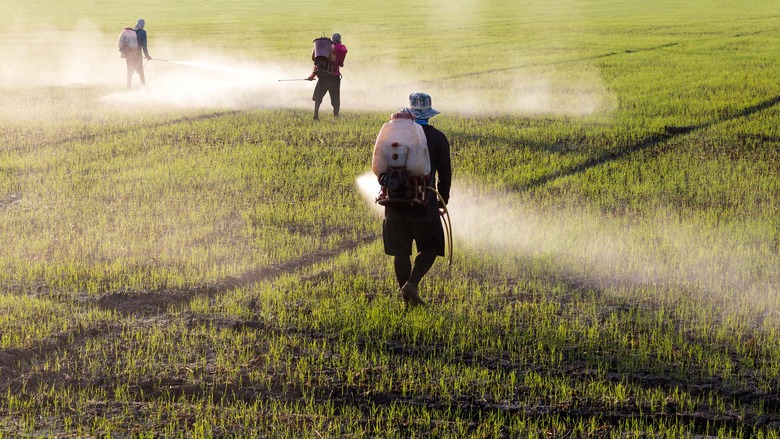Farmers Sue Monsanto And Other Corporations For Spraying Harmful Herbicides
Monsanto Co., the multinational agriculture and biotechnology corporation, is being sued (alongside BASF Corp. and DuPont) by seven Arkansas farms on multiple grounds including false advertising, negligence, creating a public nuisance, trespassing, and potentially endangering the public.
The farmers were inspired to initiate the massive lawsuit when the controversial herbicide dicamba drifted into their fields and they observed damage to their crop. The sprayed chemical has spawned turmoil in the Mid-South, thus far initiating hundreds of farmer complaints, emergency state legal regulation, and even a fatal shooting between upset farmers. (Cotton and soybean farmer Mike Wallace was killed in October 2016 during an altercation over dicamba-damaged crops.)
Dicamba has been historically outlawed for free spraying, but the ban on certain methods was recently lifted — so Monsanto, alongside other corporations, is legally justified in selling the chemical to farmers to spray. "There will always be hungry lawyers," Scott Partridge, the company's vice president of global strategy told The Daily Meal. "We will defend ourselves accordingly."
Partridge claims that the cause of the damage to crops is yet to be confirmed, and that Monsanto is initiating strategies to uncover the root cause. The spray itself has been tested by the Environmental Protection Agency and Monsanto has been cleared to use it.
However, it's not the use of the spray itself that farmers are upset about. Rather, it's the methodology, caustic in its destruction of crops that aren't genetically modified to be resistant to the herbicide. Monsanto manufactures GMO seeds that can be safely sprayed to kill weeds, but critics point out that non-GMO plants are inevitably marred by the herbicide. Additionally, the spray remains volatile for days after it's been sprayed, making it prone to drift to the fields of growers cultivating crops without the genetic modification.
The farmers enacting the lawsuit make it very clear that they are suing Monsanto the corporation, and not affiliated farmers who used the spray. "This is not farmer against farmer," said Mark Baioni, a grower involved in filing the suit.
The farmers allege that Monsanto rushed dicamba-resistant seeds to market before the herbicide's use had been approved. When the restrictions were lifted, farmers were pressured to use outdated versions of the spray that were more prone to dangerous drift. The group believes this hurried action was irresponsible and put their fields at risk.
They request monetary damages and injunctions against the sale of dicamba. The suit also demands that Monsanto repair damage caused by the spray.
Monsanto, Partridge says, is unconcerned with the lawsuit. "Our primary focus is working with our farmer customers to get to the bottom of the issue," he told The Daily Meal. "I encourage all farmers to reach out and contact us for support."
